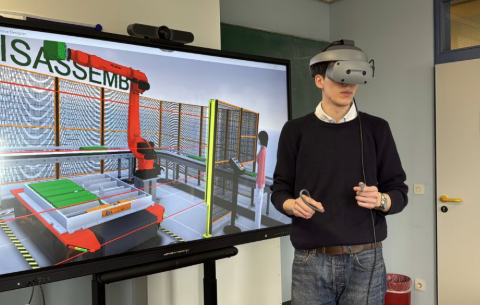Learning how to accept feedback with an open mind is a vital skill for students who want to grow academically and personally. Feedback is meant to guide improvement, offer new perspectives, and support learning—not to criticize or diminish effort. By embracing feedback without defensiveness, students can unlock their potential and become more resilient, reflective learners.
The first step to embracing feedback is to shift your mindset. Rather than seeing feedback as a judgment, view it as an opportunity for growth. Even when feedback is difficult to hear, it often contains valuable insights that can help you improve your performance. Keeping a positive, growth-oriented mindset helps reduce the instinct to take comments personally. It also fosters curiosity, encouraging students to ask, “What can I learn from this?” instead of, “Why am I being criticized?”
Active listening is also essential. When receiving feedback from teachers, peers, or mentors, it’s important to listen fully without interrupting or immediately responding. Taking notes or summarizing what you’ve heard can help clarify the feedback and show that you value the input. If something is unclear, it’s okay to ask for examples or suggestions for how to improve. Repeating the feedback back in your own words helps ensure that you understand it correctly and gives you time to process the message calmly.
Managing emotional reactions is another important part of receiving feedback well. It’s natural to feel defensive or disappointed, especially when feedback highlights areas that need work. Taking a few deep breaths, pausing before responding, or stepping away for a moment can help you process the information more calmly. Emotional regulation strategies—such as mindfulness, journaling, or reframing thoughts—can empower students to stay centered even when feedback is unexpected or challenging.
Reflecting on feedback before responding helps students internalize it. After receiving comments, students can ask themselves: What part of this feedback is most helpful? What can I change or do differently next time? This reflection encourages a proactive approach and builds a habit of self-improvement. Creating a personal feedback journal where students record insights, actions, and outcomes can support ongoing growth and self-awareness.
Teachers and parents can support this process by delivering feedback in constructive, specific, and respectful ways. Using language that focuses on effort and progress—rather than perfection—helps students feel encouraged rather than criticized. Feedback that highlights strengths alongside areas for improvement feels more balanced and motivating. Creating a classroom environment where feedback is a regular, expected part of learning makes it easier for students to receive and use it effectively.
Peer feedback is another valuable tool. Encouraging students to give and receive feedback from classmates promotes collaboration and builds communication skills. Learning how to offer feedback kindly and constructively helps students become more empathetic and respectful listeners. It also reinforces the idea that feedback is a normal, helpful part of learning—not something to be feared.
Over time, students who learn to embrace feedback become more adaptable and confident. They develop stronger problem-solving skills and are more open to trying new strategies. This openness not only supports academic success but also prepares students for future careers and relationships, where the ability to listen and grow is essential. In a world that values continuous learning and teamwork, the ability to take feedback well becomes a lifelong advantage.
In summary, embracing feedback without defensiveness is a powerful skill that leads to continuous improvement. With the right mindset, supportive environments, and emotional tools, students can use feedback as a stepping stone to achieve their goals and become lifelong learners. Learning to see feedback as a form of support, not criticism, empowers students to face challenges with confidence and curiosity, leading to deeper learning and personal growth.


